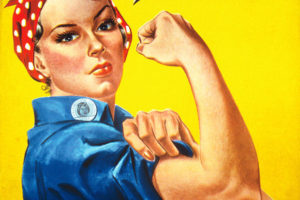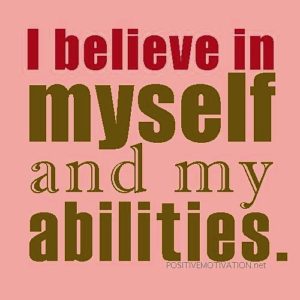The Tragedy in Children’s Entertainment

I want you to sit back and imagine something. I want you to picture in your mind a child, can be any age just picture one. Now this kid is excited, mom and dad have bought passes for a comic con. He/she has made a costume to wear based off of their favorite character on their favorite tv show. The kid is a bundle of excitement.
Now I want you to imagine this: The children’s show booth the kid is heading to is next to The Walking Dead’s booth. Or even worse, the kid is alone with a stranger coming up to compliment them on their costume and starts stalking the kid.
Sadly, this is not fiction. These scenarios are taken from real life comments on comic cons by adults calling out organizers comic cons out on their neglect or to inform the community of an appalling act on social media. Unfortunately, there are many more horror stories about the dark side of the children’s industry. Of adults who make online adult parodies to children’s tv shows and movies or of misbehavior on a convention floor.
I am not mentioning this to make parents paranoid. I am writing this to inform parents and to-be parents of how adults are ruining children’s media and give insider ideas on how to keep your little one safe physically and mentally/emotionally. But first let’s give a little context to exactly what is going on and what one filmmaker says about it.
This issue was brought to my attention two ways. One, there was an artist who made a comic about what adults are doing to kid shows. That some adults consider a show too good to be for kids and decided to attach all of the explicit content that adult media has. Two, I saw an interview from my childhood role model in the industry: Hayao Miyazaki. (Never found the original video but here’s the gif I saw on the blogs that caught my attention.)
To summarize things: Mr. Miyazaki has left the industry that he has been and is best known for. He has created beautiful stories of young, strong female protagonists – movies that were the highlights my childhood and many others around my age. When he left the industry many people cried. Yet, that being said, Mr. Miyazaki has said many things as of late that have made all of his fans gawk in disbelief.
In an interview, Mr. Miyazaki said that he couldn’t look back at some of his movies fondly. The reason being that he has become aware that the fans of the media known as “otaku” (the term for anime and manga fans who are on the obsessed side; likewise it refers to a person who stays home all of the time and has no life and/or someone who obsesses with anything) are perverts. What I can say cannot do justice so here is what Mr. Miyazaku said in reference to otaku,
“These degenerates sexualize these innocent young female protagonists. And now the industry is built around catering to that. It’s disgusting. Why would I want to stay in an industry like that?”
A powerful statement from someone who has dedicated his life to making family orientated films. When you look at things on this side of the Pacific, the same thing has happened. Granted, things are slipped into kids movies that is meant for the parent who was forced to bring the kids to the theater but they are meant to be over a child’s head. A silly little comment that isn’t understood by little ears. But some things, such as adults making new art that sexualizes Disney, that’s bluntly trying to ruin a childhood if a kid runs across that on the web. As a recent grad of creative writing, this unfortunate dark side of the industry made me look back to the class I had in children’s media during my B.A.
We (meaning film students, literary students, and art students) have been told how to stick to the rating system of PG, PG 13, R (film) – Pre-k, Elementary, Middle School, Young Adult, New Adult, Adult (literary). Yet, people who have been taught children’s media have not been told about this tragic dark side to the industry. Yes, there’s the assumption that some pervert out there could lure a child using the show as a conversation piece just like the “I have lost my dog” ruse that stranger-danger lessons warn about. There are some things that are out of a creator’s control. Sadly, there is no class for people in the industry to take on how to prevent adults from ruining a life’s work in children’s media. Though if someone ever mastered a method he or she would be a billionaire. All we adults can do is stick to a code of ethics when it comes to children’s media and come up with a plan on how to protect kids from a side of humanity that many of us wish was struck by lightning.
So how do you protect kids from this potentially dangerous side of the industry?
- If you are planning on bringing your child or a young family member to a comic con do your research. Some comic cons are run by people who are neglectful of safety and have a track record of not having the proper procedures when it comes to sexual harassment, stalking, or luring. All official comic cons have ways to contact them. If the answer you get isn’t satisfactory, you can always contact the police station where the event takes place to inquire on if there has ever been trouble and turn to social media to ask past attendees your questions. Likewise, if the information is available, learn the layout of the booths and get a map.
- Educate! Best way to stay safe is to educate your kid. It is also good to be educated yourself. Kids don’t know what is considered a bad touch or what to do if faced with a sexual predator. It’s up to you to teach them how to stay safe and to provide them with the tools that can keep them safe. (Example of one tool: a cheap no-contract phone that’s programed with your cell phone number or with the number of the adult they will be with. If you can, get one with a built in camera and teach the kid to take a picture or movie of the person who is stalking them in a discreet manner.) As the adult, it is also your responsibility to evaluate the situation. Are there flyers around the comic con saying things along the lines of, “Costume is not consent,” or “Feel harassed? Call _______ or come to booth ___.” You can’t keep a child in the bubble suit forever, so educate them on how to stay safe. Every child matures differently and at different rates mentally. You may find out that your child understands what you are saying.
- Likewise, learn how your kid reacts to danger. Children are not always vocal when uncomfortable. Mannerisms can sometimes be the destruction of a child/person when in danger. Teaching a kid that it’s okay to “be rude (to an extent, mind you)” is something that should be a priority. Kindness/not wanting to make a scene/not wanting to be rude can be a dangerous thing when faced with stranger danger and potential stalkers. Any woman who has been to or part of a rape prevention class knows that the easiest way to draw attention is to shout, “Fire!” Learning a kid’s discomfort cues or even teaching them a code they can use to say, “I don’t like it here/someone is bothering me” should be an adult’s number one priority. If it’s preplanned, the message comes across better than a tug on the arm that an adult sees as impatience instead of a serious message. We adults can be oblivious to children’s thoughts and emotions sometimes, so ensuring that you’re on the same page means that a child feels a little bit safer.
- This one is obvious, but seriously use the code system (or the password system). In summary, the code/password system is a test that family uses to make sure that a child isn’t snatched by someone who says they’ve been sent by mom/dad/grandma/grandpa. In any public situation where a group could be separated, this system is highly recommended.
- In regards to the adult parodies of children’s media online: I speak as a twenty-one year old here and I am going to be very, very blunt. Parents, no matter how many safeguards you have – the banned websites and tv stations – the reality is, your children may know more than you think just through their friends and real world situations. While a kid/teen does run into those, “you’ve ruined my childhood” images and movie versions of a show/movie, the likelihood is that they aren’t shocked. As disgusting as it sounds, content of the adult world and what was seen as adult only topics are getting absorbed by children’s minds at younger ages today than it ever has. In some ways there is nothing we can do other than talk to them about it in a non-judging way. (And resist the urge to over protect and shelter the children in your life. Neither of those things are the answer and can create problems instead of solve them.) You may actually help by teaching them not to contribute to the problem.
Sometimes we can’t keep children in the dark, in a pillow suit, for protection. So the next best thing is to make sure that we adults teach them how to handle themselves when faced with danger and potentially childhood ruining things.







